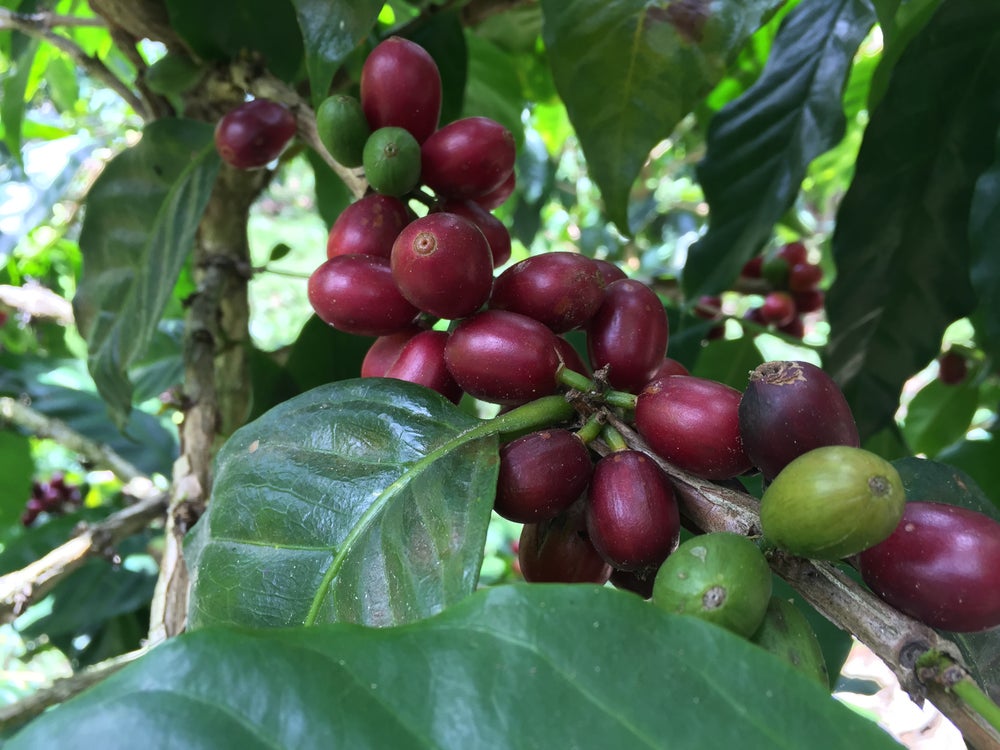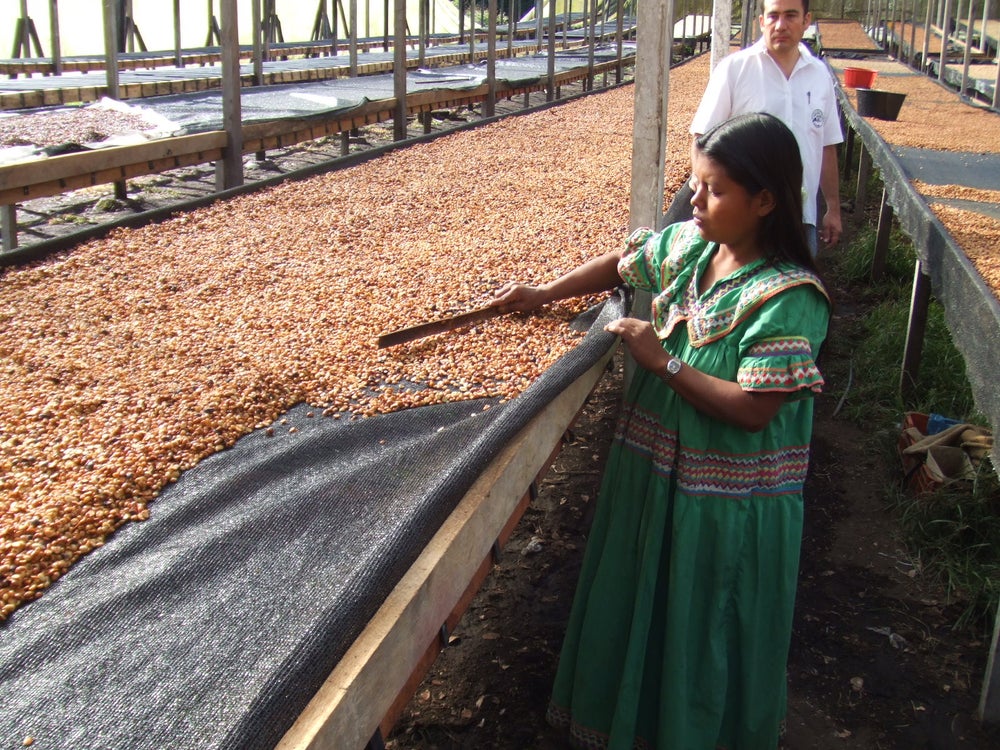About This Coffee
The Hartmann family patriarch, Alois St. Hartmann, was born in Czechoslovakia in 1891. In 1914, at the onset of First World War, Hartmann emigrated to Pennsylvania in the United States where he changed his name to Luis Hartmann. Hartmann later purchased land in Chiriqui, in Panama and built a house. On that land, Hartmann began growing the first coffee trees on the Hartmann Estate.
Direct descendants of Luis Hartmann own and manage the estate today. Third generation, Ratibor Hartmann manages the business and each of his four siblings oversees a specific aspect of the farm. There is a warm family vibe at this estate and issues are resolved smoothly in a way that you can tell that this family has lived together all their lives.
This is a unique Pacamara lot. The Institute for Coffee Research (ISIC) created the Pacamara hybrid in El Salvador in the 1950s. The variety is a cross of Pacas (a Bourbon mutation) and Maragogype. Pacamara is relatively short with high productivity and is prized for its large cherries. The name comes from the first 4 letters of each parent.
Harvest & Post-Harvest
After harvest, cherry is pulped. Coffee and mucilage is moved to raised drying beds. Cherry is laid on African raised beds. Throughout the process, cherry is visually inspected to remove damaged or over- and under-ripes and then laid in thin layers on raised beds. Raised beds allow for better airflow throughout drying that help prevent over-ripening, fermenting or spoiling.
It is evident that the producers place the utmost care into processing this coffee. This coffee in this lot was processing using traditional Natural processing techniques. They call the processing method ‘winey’ process in order to differentiate this smaller-scale processing from the larger-scale Natural processing that is common throughout Brazil.
Coffee in Panama
Though small in coffee production, Panama is a mighty player in coffee quality. In particular, Panama is famous for producing Geisha variety lots that have fetched prices exceeding $800 per pound. Today, its renown as a producer of rare and sought-after varieties positions Panama as a contender for a new kind of ‘coffee-tourism’ that has the potential to change the way we produce, purchase, consume and talk about specialty coffee on a global scale.
The high value of Geisha has brought out both the best and worst in the industry. For established producers who receive excellent prices for their Geisha and other lots, the high prices they receive have often been reinvested in their communities and in renovating their farms to be as environmentally sustainable as possible. Unfortunately, the lure of Geisha’s high value has led some people bypass traditional land purchasing agreements and illegally deforest areas of national parks to get the best location for new (and illicit) Geisha farms.
Even as the number of producers those receiving high prices for their Geisha remains relatively low, the blossoming coffee industry in Panama has demonstrated potential to raise incomes for a wider spectrum of producers and coffee workers.

